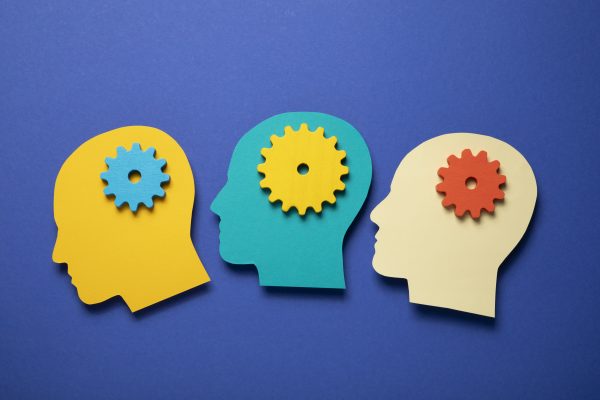In today’s dynamic and complex work environments, being a good leader requires more than strategic thinking or technical expertise. What truly sets great leaders apart is their ability to connect, empathize, and lead with emotional insight. This is where emotional intelligence (EQ) comes into play.
Emotional intelligence in leadership is not just a buzzword — it’s a critical skill that influences how leaders manage themselves, relate to others, and make decisions. In this blog post, we’ll explore what emotional intelligence is, why it matters for leaders, and how to develop it to enhance your leadership impact.
What Is Emotional Intelligence?
Emotional intelligence is the ability to recognize, understand, and manage your own emotions, as well as to recognize, understand, and influence the emotions of others. It’s made up of several components that work together to shape how we respond to situations and interact with others.
According to psychologist Daniel Goleman, who popularized the concept, emotional intelligence consists of five key elements:
- Self-awareness
- Self-regulation
- Motivation
- Empathy
- Social Skills
These components form the foundation of emotionally intelligent leadership.
Why is Emotional Intelligence Important in Leadership?
Leadership is not just about giving orders or achieving goals – it’s about inspiring people, navigating challenges, and building trust. Emotional intelligence allows leaders to do all these more effectively.
Here’s why EQ is so important for leaders:
- Better Decision-MakingEmotionally intelligent leaders are less reactive and more thoughtful. They can separate emotions from facts and make sound decisions even under pressure.
- Stronger RelationshipsEQ helps leaders build stronger relationships with their teams. When leaders understand and relate to the emotions of others, they create a culture of respect and trust.
- Improved Team PerformanceTeams led by emotionally intelligent leaders tend to be more engaged, motivated, and productive. Employees feel heard and valued, which leads to better collaboration and performance.
- Effective Conflict Management
Conflicts are inevitable in any workplace. Leaders with high EQ can manage conflicts constructively, turning tension into opportunities for growth and understanding. - Resilience in Times of ChangeChange is hard, but leaders who manage emotions well can guide their teams through transitions with confidence and empathy.
The Five Elements of Emotional Intelligence in Leadership
Let’s take a closer look at each of the five elements and how they play out in leadership:
1. Self-Awareness
Self-awareness is the ability to recognize your own emotions and understand how they affect your thoughts and behavior. Leaders who are self-aware understand their strengths, weaknesses, values, and triggers.
Example: A self-aware leader might recognize they’re feeling stressed before a meeting and take a moment to calm down to avoid snapping at a team member.
How to develop it:
-
Reflect on your behavior and reactions regularly.
-
Keep a journal to track emotional responses.
-
Ask for honest feedback from peers or mentors.
2. Self-Regulation
Self-regulation is the ability to control your emotions and impulses. Leaders who self-regulate don’t make impulsive decisions or let frustration get the best of them.
Example: When facing criticism, a self-regulating leader pauses, listens, and responds constructively rather than defensively.
How to develop it:
-
Practice mindfulness and stress management techniques.
-
Count to ten before responding to emotional situations.
-
Focus on staying calm and composed under pressure.
-

3. Motivation
Motivated leaders have a passion for their work that goes beyond money or status. They set goals, are committed to excellence, and have a positive outlook—even in the face of setbacks.
Example: A motivated leader stays focused on long-term goals and energizes their team to keep pushing forward, even after a failed project.
How to develop it:
-
Set personal and team goals that align with your values.
-
Celebrate small wins to maintain momentum.
-
Surround yourself with positive influences and mentors.
4. Empathy
Empathy is the ability to understand and share the feelings of others. It’s a crucial skill for leaders who want to build trust and support their teams effectively.
Example: An empathetic leader notices a team member is unusually quiet and checks in with them privately to offer support.
How to develop it:
-
Listen more than you speak during conversations.
-
Ask questions that show genuine interest in others’ experiences.
-
Try to see situations from others’ perspectives.
5. Social Skills
Social skills involve managing relationships, inspiring others, and navigating social complexities. Leaders with strong social skills can build networks, influence others positively, and lead change smoothly.
Example: A leader with strong social skills can give constructive feedback without offending, and can motivate their team with clarity and enthusiasm.
How to develop it:
-
Work on your communication—be clear, open, and respectful.
-
Learn how to manage difficult conversations.
-
Practice collaboration and seek input from your team.
Emotional Intelligence vs. IQ in Leadership
You might be wondering: isn’t intelligence (IQ) more important for leadership?
While cognitive intelligence is essential for understanding complex systems and solving problems, it’s emotional intelligence that determines how well you work with people.
IQ might get you hired, but EQ will make you a successful leader.
A high IQ may help you create brilliant strategies, but without EQ, you may struggle to get buy-in from your team or manage relationships effectively.
Real-World Examples of Emotionally Intelligent Leaders
Many respected leaders credit their success to emotional intelligence. Here are a few examples:
Satya Nadella (CEO, Microsoft):
When Nadella became CEO, he focused on empathy as a core leadership value. Under his leadership, Microsoft adopted a growth mindset culture, improved employee engagement, and saw a major turnaround.
Jacinda Ardern (Former Prime Minister of New Zealand):
Ardern led with compassion and empathy during crises, including the Christchurch mosque shootings and the COVID-19 pandemic. Her emotionally intelligent approach earned global admiration.
Howard Schultz (Former CEO, Starbucks):
Schultz emphasized care for employees and created a culture of inclusion and emotional connection. His leadership helped build one of the most people-centric brands globally.
How to Cultivate Emotional Intelligence as a Leader
If you want to become a more emotionally intelligent leader, start with small, consistent actions:
- Self-reflect daily – What went well? What could you handle differently?
- Listen actively – Focus on understanding, not just responding.
- Seek feedback – Ask your team how you can improve your leadership.
- Practice empathy – Pause to consider how others may feel.
- Respond, don’t react – Take time before replying to emotional triggers.
Emotional intelligence is the invisible thread ties successful leadership together. It’s not just about managing tasks — it’s about managing people with empathy, awareness, and grace.
Leaders who master EQ build stronger teams, foster more meaningful relationships, and create workplace cultures where people feel valued and motivated.
In a world where human connection matters more than ever, emotional intelligence isn’t just an asset — it’s a necessity.
Start developing your emotional intelligence today and lead with purpose, empathy, and authenticity.

